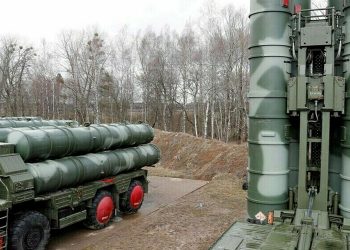Although Pakistan’s relations with the United States remain strained under Imran Khan’s government, bilateral defence and military ties have been cordial. Army Chief Gen Bajwa has also said Pakistan is seeking to expand its strategic relationship with Washington.
The remarks are in sharp contrast to the prime minister’s narrative alleging that the US interfered in internal affairs and plotted to bring regime change in Pakistan. The army chief, however, maintains the United States remains our biggest export market and Pakistan wants to expand ties.
Gen Bajwa also said Pakistan was deeply concerned by the Ukraine conflict and Russia’s aggression cannot be condoned. Under Imran Khan, the government refused to outright condemn Russia for the invasion and even abstained from voting on UN resolutions. Imran Khan met Putin on the day Russian forces invaded. This move was held a message to the West that Pakistan is finding new friends.
Pakistan was once the top recipient of American arms and funds until it sought a more nuanced foreign policy after becoming increasingly reliant on China. However, Pakistan cannot afford to worsen ties with US or European Union as it is a large market for our exports. Meanwhile, Ukraine has emerged as a reliant trade partner as Pakistan has imported wheat and fertilizer from the nation. In contrast, relations with Russia remain frosty and the thawing process could take time.
This year, Pakistan is observing 75 years since the establishment of diplomatic relations with the United States. Just two months after independence, the US became one of the first countries to forge ties with Pakistan. Despite China’s growing role and becoming the largest importer, the United States remains a huge source of foreign direct investment and the largest export market for us.
The army chief’s comments are an indication that it is necessary for Pakistan to maintain ties with the United States. The prime minister has said he wants cordial ties with all countries and doesn’t want to be involved in ‘camp politics’. However, in an increasingly bi-polar world, countries have to make such crucial foreign policy decisions and for the next government it would be a herculean task to amend relations.


























